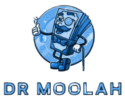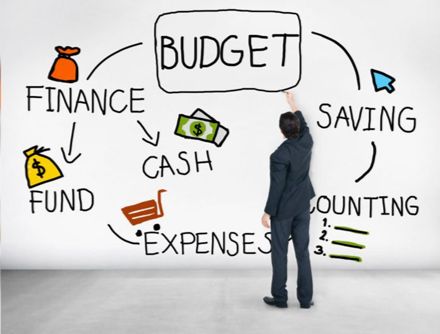Modern life is fast, and literacy in finance is therefore very crucial. Breaking free from debt, building wealth, or planning retirement—all start with the mastery of personal finance. However, where should one begin? There are so many resources available out there that looking at it can be perplexing. Hence, we have put together a list of some of the leading books on personal finance to help you learn and become confident in making the right financial decisions. These will give you timeless advice, actionable strategies, and insights into what works for changing your financial life—no matter where you’re starting from.
“The Psychology of Money” – Morgan Housel

Overview:
“The Psychology of Money” goes deep into financial decision-making’s behavioral and emotional aspects. Morgan Housel shares nineteen short stories about how people think about money. It rather focuses on financial success as not about what one knows but about one’s behavior. He argues that understanding the psychology behind the financial decisions taken by a person has to be known as mostly pure logic has been overtaken by emotions like fear, greed, and pride.
Why Read It:
This book is a must-read for anyone interested in really knowing those intrinsic, emotional, usually ignored factors that affect one’s financial choices. Using real-life examples and stories, he tries to make readers realize that financial success is as much about managing a mindset as managing money. Although plenty of personal finance books are out there, “The Psychology of Money” stands a notch above in how it looks into how behavior can be uniquely managed toward stability and wealth.
“I Will Teach You to Be Rich” – Ramit Sethi ( 2nd Edition)

Overview :
Within this book, I Will Teach You to Be Rich, Ramit Sethi brings a no-nonsense, six-week program set up to help you automate your finances. View, from credit cards to saving accounts, investments, and buying a house. No-nonsense, practical advice. The book simplifies the steps of this whole financial process so anybody, no matter what kind of beginning they have, would be able to follow. This newly updated edition includes new insights into the psychology of money, making the information even more relevant for modern readers.
Why Read It:
A no-nonsense approach that anyone can apply, making this one of the most accessible personal finance books out there. It’s going to be particularly useful for the younger professional or individual who is new to the idea of managing their own money. Practical advice in the book centers around the idea of automation: setting up your finances and then, in Sethi’s own words, “getting on with your life.” It’s this mix of down-to-earth advice and psychological insight that makes this book a must-read for anyone serious about getting a grip on their financial future.
“Your Money or Your Life” – Vicki Robin and Joe Dominguez

Overview :
“Your Money or Your Life” is a life-changing blueprint that challenges a reader to re-examine their relationship with money and work. It introduces the concept of understanding one’s money as the life energy sold out to somebody else, asking its reader to look into whether his spending is aligned with his values. There is a nine-step program to get financial independence: be frugal, be mindful of spending, and create a full life rather than one whose definition rests on material wealth.
Why Read It:
One of the first personal finance books in the market and highly influential in the financial independence space, this book is particularly effective for adherents of the FIRE philosophy (Financial Independence, Retire Early). This book is one of the most influential personal finance books out there because it is so much more than budgeting and saving—it is a complete overhaul of your mindset as it relates to money. With its principles, readers can achieve not only financial freedom but a more meaningful and fulfilling life.
“The Simple Path to Wealth” – JL Collins

Overview :
“The Simple Path to Wealth” by JL Collins is a series of letters to his daughter that explains how one goes about reaching financial independence through investing. The book is mostly a compilation of working down hard-to-follow financial dissertations, giving very direct advice with a strong affinity toward index funds. In the opinion of Collins, joining the market amounts to basically choosing the best tool for building wealth. CONTINUE READING to learn how to use it successfully.
Why Read It:
This investment book is a no-nonsense contribution to the market—especially for the absolute beginner. Collins’s writing is very user-friendly and down-to-earth, making this probably one of the best personal finance books for people who might get intimidated by the world of investing. “The Simple Path to Wealth” teaches simplicity and long-term growth to avoid many of the pitfalls created by complex financial products on the road to financial independence.
“Rich Dad Poor Dad” – Robert T. Kiyosaki

Overview :
In “Rich Dad Poor Dad,” Robert Kiyosaki compares the financial philosophies of his two father figures: his real father (Poor Dad) and his best friend’s father (Rich Dad). The main emphasis of the book is on the vast importance of financial education and the necessity of having more assets over liabilities. Kiyosaki specifies mostly that rich people think differently about money; they seek to invest in their way to wealth rather than only earning active income.
Why Read it:
One of the most popular personal finance books of all time, “Rich Dad Poor Dad” has inspired millions to think differently about money and wealth building. Kiyosaki delivers easy-to-understand lessons that challenge mainstream financial advice while pushing readers to find financial independence through better money management and wiser investments. It’s a great read for shifting the mindset about earning a salary toward creating long-term wealth.
“The Millionaire Next Door” – Thomas J. Stanley and William D. Danko

Overview :
“The Millionaire Next Door” destroys the false notion of the wealthy driving flashy cars and living in big houses. From their massive research, Stanley and Danko discover that the rich usually live very modest lives and are thrift spenders. They’re also great promoters of saving and investing, not consumption. The book gives characteristics of habits and traits of the wealthy in America, where true financial success is often a result of living within your means and making sound financial decisions.
Why Read it:
The book will be very helpful to people concerned with the very idea of amassing wealth. This is among those very illuminative personal finance books, that tell one what becoming a millionaire is. More on wise choices and character without high earnings. Learning how the rich live, one could apply such principles to their own life and be financially secure, starting from anywhere.
“Atomic Habits” – James Clear

Overview :
How small, independent improvements with time develop into powerful habits. The book is not about finance, but necessarily, its principles aptly fit personal finance. Clear takes one on how small habits usually multiply over time and can result in huge strides in finances—whether you save more, pay off debt more, or invest regularly.
Why Read it:
“Atomic Habits” is another essential addition to your list of personal finance books as it provides a framework to form the habits that will create success for you, financially. James Clear goes on to apply a scientific approach in showing readers how to break negative financial habits and turn them into positive ones which will build long-term wealth and stability. It is a book that relies on small wins and consistency and is, therefore, a working blueprint for someone looking to uplift their financial status.
“Financial Freedom” – Grant Sabatier

Overview :
“Financial Freedom” by Grant Sabatier is where readers learn how to go from $2.26 in savings to a millionaire in just five years. Herein, Sabatier talks about how to increase your income, save aggressively, and invest for growth. Sabatier is very pragmatic and motivational towards taking control of the readers’ financial destinies, and he is making sense while doing it.
Why Read it:
Very inspiring writing on achieving financial independence, this publication is for a serious person. It may just be one of the most practical personal finance books. It gives very implementable tips that one can begin to implement right away. Be it early retirement or more freedom in financial life, “Financial Freedom” will be a clear roadmap you’ll follow to take you places. Especially inspiring is Sabatier’s story and advice for people from the ground up or those with large financial problems.
“The Barefoot Investor” – Scott Pape

Overview :
“The Barefoot Investor” is a step-by-step manual on personal finance made way too simple. The Scott Pape policy is simple: cut through all the nonsense involved in financial advice and focus on a few key actions that will make the greatest impact. This book discusses everything one might be interested in regarding budgeting, the reduction of debts, investment, and retirement, but in a very conversational manner.
Why Read it:
This is one great book to help with keeping your finances in order in a no-nonsense manner. Pape’s advice is practical and easy to implement while being designed to be implementable with ease. Whether you are looking to start at the very beginning or fine-tune your finances, “The Barefoot Investor” lays out a simple and effective plan that anybody can use to secure financial freedom.
“Die With Zero” – Bill Perkins

Overview :
In “Die With Zero,” the author Bill Perkins describes how everything has been so untrue we have been told about saving for life after retirement, which in turn becomes misleading when the best parts of one’s life, your strongest years, might indeed be behind you. He says a person should not die with a lot of balance in a bank, but ought to live maximally by wisely buying those goods or experiences that gratify a person. The book discusses strategies on how you should spend to make your life more worthwhile and at the right periods of life.
Why Read it:
Refreshingly, this book is an altogether fresh take on personal finance—not just as a means of accumulation. Rather, it speaks toward how one wants to use their money throughout life rather than saving for the future. As such, “Die With Zero” is easily among the most thought-provoking books within personal finance. This is most valuable to all who want to live a balanced financial life, be responsible, and still enjoy all the richness of living.
Conclusion
From mastering communication skills to understanding financial principles, these personal finance books offer valuable tools at every stage of your journey toward financial independence and security. Additionally, they delve into the psychology of money management, provide practical steps for investing and saving, and present substantial strategies to help you take control of your most important asset—your financial future.
At Dr. Moolah, we are dedicated to helping you make informed decisions about your money. Whether you are just starting or are a seasoned investor, these books will serve as invaluable assets and additions to your personal finance toolkit. Remember, financial success isn’t merely about how much you make; rather, it’s about making your money work smarter for you. So, dive into these reads, equip yourself with essential knowledge, and let Dr. Moolah be your trusted companion throughout this financial journey.




Its a very good website to get knowledge about books.
Thank you for the compliment! While we do offer valuable insights on books, our website also provides a wealth of knowledge on financial tips, investment strategies, and money-making techniques. We’re dedicated to helping you achieve financial success in every way possible!
A good job to introduce it .but I not understand it.
Thank you for your feedback! I’m glad you found the post interesting. I’m sorry to hear that it wasn’t completely clear. Could you let me know which parts were confusing or if there’s anything specific you’d like more information on? I’m here to help and would love to clarify any points or answer any questions you might have.
NICE
Thank you so much for your kind words! I’m thrilled to hear that you enjoyed the post. If you have any questions or need further information on the topic, feel free to reach out. Your feedback is greatly appreciated!
YBeS zkf NIt TZrXUC AlwXj Fhsd pIKdOuqr